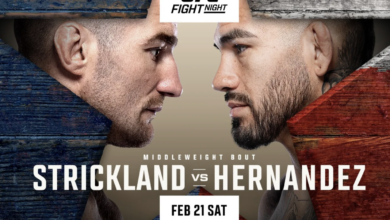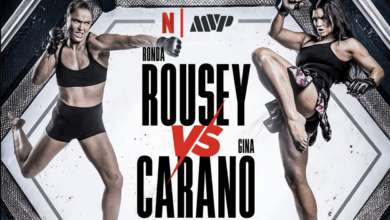The impact of MMA on traditional martial arts
Introduction
Martial arts are some of the oldest and most traditional forms of human sport. MMA (mixed martial arts) has broken into the mainstream throughout the early 21st century, with millions of people practicing the elements that comprise the collective term. Some of these martial arts include judo, karate, Brazilian jiu-jitsu (BJJ) and many other disciplines, which have survived over hundreds, sometimes thousands of years and continually appeal to new generations of men and women. However, the recent soaring popularity of MMA has brought into focus the current dynamic of these individual disciplines and whether or not they are losing their unique features due to the coalescence of the respective crafts.
The rise of the UFC
There’s no beating around the bush; UFC has propelled MMA into the spotlight, and even a few decades ago, before the existence of the UFC, many of the top disciplines that comprise mixed martial arts had their own individual pockets around the world. It’s not just the quality of the combat that ensues in UFC events – an undercurrent of subsidiary markets exists that helps drive the success of the colossal sports entertainment behemoth.
Dana White’s business model is to match the best fighters against the best, and it acts as a potent antithesis to the political shambles that exists in boxing, where it takes up to a decade to get the best names to face off against each other. White has no such problem, and this is often reflected in the close betting odds when significant bouts occur. Betsafe offers a plethora of MMA markets, and as UFC and other organizations continue pumping up their ratings, these gambling markets and other associated markets that exist as a result of the UFC can ride the coat-tails of the industry and help it cement itself as one of the most exciting sports industries on the planet.
Crossover events in the UFC have resulted in the sport generating phenomenal demand. The 2017 match between Conor McGregor and Floyd Mayweather was one of the most-watched PPV events ever. Although Francis Ngannou has left UFC, his incredible performance against Tyson Fury when he could have won against the world heavyweight champion has done wonders for UFC.
The impact on traditional martial arts
Whereas traditional martial arts would have a small, specific audience, the emergence of MMA has caused a profound shift in how people approach conventional martial arts. The UFC has shown how much money can be made for combatants who can successfully bring in PPV numbers. If rising stars in martial arts want the best financial rewards in their profession, the avenue that looks the most increasingly profitable is MMA. Therefore, there has been a noted rise in traditional martial arts gyms offering routes to learn MMA, or how to use these skills most effectively in the octagon.
Traditional martial arts like karate, judo and Brazilian jiu-jitsu all have elite tournaments, and winning said tournaments will turn you into a legend of the sport. However, in terms of making millions of dollars, the UFC is where it’s at, and this is why so many have merged their elite skills in grappling, wrestling or kickboxing and aimed for the big league of professional cage fighting.
Is there still a place for traditional martial arts?
It’s all about adapting to the current market and societal trends. Boxing, as we touched on in our introduction, is an excellent example of a sport that has gone from primetime weekend television to the fringes of sporting entertainment. Tens of millions of people would watch Mike Tyson, Lennox Lewis and Evander Holyfield in the 1990s.
Going further, over one billion people watched Muhammad Ali beat George Foreman in the Rumble in the Jungle. Nowadays, rugby, golf and cricket all have a much broader global appeal, and UFC has also started to take fans away from the sport.
While this might sound convoluted, the point is that boxing has survived and will always exist as a sport. The same applies to traditional martial arts. Just because there’s heightened competition between the UFC and traditional martial arts doesn’t mean that traditional martial arts that have been practiced for thousands of years will suddenly disappear. Ultimately, the MMA is creating more interest in all of these sports collectively. As the UFC continues on its quest to become the most popular combat sports company on the planet, people will continue to explore traditional and modern forms of combat, so while the impact is profound, it isn’t necessarily negative.




